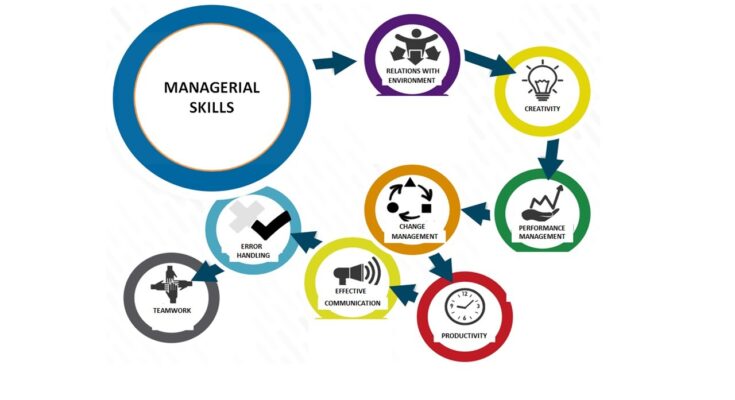Effective management is crucial for the success of any organization. Managers play a pivotal role in guiding their teams towards achieving the company’s goals and objectives. To excel in this role, managers need to possess a diverse set of skills that enable them to lead, motivate, and inspire their teams.
The landscape of management has evolved significantly over the years, with new challenges and opportunities arising in the digital age. In this article, we will explore the top five managerial skills that are essential for modern-day managers to thrive in their roles.
From communication and leadership to problem-solving and decision-making, each skill plays a critical role in shaping a manager’s effectiveness. By understanding and honing these skills, managers can not only enhance their own performance but also contribute to the overall success of their teams and organizations.
Join us as we delve into the intricacies of these skills, exploring their importance, key components, and practical tips for improvement. Whether you’re a seasoned manager looking to enhance your skill set or an aspiring manager looking to prepare for future challenges, this article will provide you with valuable insights to succeed in the dynamic world of management.
“A good manager is a man who isn’t worried about his own career but the careers of those who work for him.” – H. S. M. Burns
Importance of Managerial Skills in Leadership

Managerial skills are crucial for effective leadership as they enable managers to inspire, motivate, and guide their teams. These skills help in decision-making, problem-solving, and communication, which are essential for achieving success in a leadership role.

Communication Skills
Definition and Importance
Communication skills are the ability to convey information effectively and efficiently. In a managerial role, communication skills are vital for building relationships, resolving conflicts, and conveying expectations to team members.
Examples of Effective Communication in Managerial Roles
Effective communication in managerial roles includes active listening, clear and concise messaging, and the ability to adapt communication style to different audiences.
Strategies for Improving Communication Skills
Improving communication skills can be achieved through practice, seeking feedback, attending communication workshops, and learning from successful communicators.
Leadership Skills
Definition and Importance
Leadership skills are the abilities to inspire, influence, and guide others towards a common goal. These skills are essential for creating a vision, motivating team members, and driving change within an organization.
Different Leadership Styles
There are various leadership styles, including autocratic, democratic, transformational, and servant leadership. Each style has its own strengths and weaknesses, and effective leaders often adapt their style based on the situation.
How to Develop Leadership Skills?
Leadership skills can be developed through formal training, mentorship, gaining experience in leadership roles, and seeking feedback from colleagues and team members.
Decision-Making Skills
Definition and Importance
Decision-making skills are the ability to make sound judgments and choices based on available information. In managerial roles, decision-making skills are crucial for solving problems, setting priorities, and allocating resources effectively.
Types of Decision-Making Skills
There are different types of decision-making skills, including analytical, intuitive, collaborative, and creative decision-making. Each type is suited for different situations and requires a different approach.
Techniques for Improving Decision-Making Abilities
Improving decision-making abilities can be achieved through practicing critical thinking, gathering relevant information, considering different perspectives, and evaluating the outcomes of decisions.
Also Read: Why are Communication Skills Important?
Problem-Solving Skills
Definition and Importance
Problem-solving skills are the ability to identify, analyze, and resolve problems effectively. In managerial roles, problem-solving skills are essential for overcoming challenges, improving processes, and driving innovation.
Examples of Problem-Solving in Managerial Roles
Examples of problem-solving in managerial roles include identifying the root cause of a problem, brainstorming solutions with team members, and implementing a plan to address the issue.
Strategies for Enhancing Problem-Solving Skills
Enhancing problem-solving skills can be achieved through practicing active listening, collaborating with others, breaking down complex problems into manageable parts, and learning from past experiences.
Time Management Skills
Definition and Importance
Time management skills are the ability to prioritize tasks, organize work efficiently, and meet deadlines. In managerial roles, time management skills are crucial for maximizing productivity and achieving goals.
Techniques for Effective Time Management
Effective time management techniques include setting SMART goals, creating a daily schedule, minimizing distractions, and delegating tasks to others.
Tools and Resources for Managing Time Efficiently
There are various tools and resources available to help manage time efficiently, such as time-tracking apps, task management software, and productivity techniques like the Pomodoro Technique.
Conclusion
In conclusion, the role of a manager is multifaceted, requiring a diverse set of skills to navigate the complexities of modern business environments. The top 5 managerial skills—communication, leadership, problem-solving, decision-making, and time management—are crucial for effective management and organizational success.
Communication skills enable managers to convey their ideas clearly, listen actively, and build strong relationships with their teams and stakeholders. Leadership skills empower managers to inspire, motivate, and guide their teams towards achieving common goals. Problem-solving skills allow managers to identify issues, analyze root causes, and implement effective solutions.
Decision-making skills enable managers to make informed and timely decisions, considering various factors and potential outcomes. Time management skills help managers prioritize tasks, manage resources efficiently, and meet deadlines effectively.
In today’s dynamic and competitive business landscape, possessing these top managerial skills is essential for managers to lead their teams, drive innovation, and achieve sustainable growth. Continuous development and honing of these skills through training, practice, and feedback are key to becoming a successful and effective manager in any organization.
Importance of Continual Skill Development for Managers
Continual skill development is crucial for managers to stay relevant in a dynamic business environment. By continuously improving their skills, managers can enhance their effectiveness, drive organizational growth, and achieve long-term success.
FAQ
Q: Why are communication skills important for managers?
Communication is essential for managers to effectively convey information, ideas, and expectations to their team members and stakeholders. It helps build trust, clarity, and a positive work environment.
Q: How do leadership skills contribute to effective management?
Leadership skills enable managers to inspire, motivate, and guide their teams towards achieving organizational goals. They also help in building strong relationships and fostering a positive team culture.
Q: How do problem-solving skills benefit managers?
Problem-solving skills allow managers to identify issues, analyze root causes, and develop effective solutions. They are crucial for overcoming challenges and driving continuous improvement.
Q: Why is decision-making an important skill for managers?
Decision-making skills help managers make informed and timely decisions, considering various factors and potential outcomes. This skill is crucial for effective problem-solving and achieving organizational goals.
Q: How does time management help managers in their roles?
Time management skills help managers prioritize tasks, allocate resources efficiently, and meet deadlines effectively. This skill is essential for maximizing productivity and achieving work-life balance.




